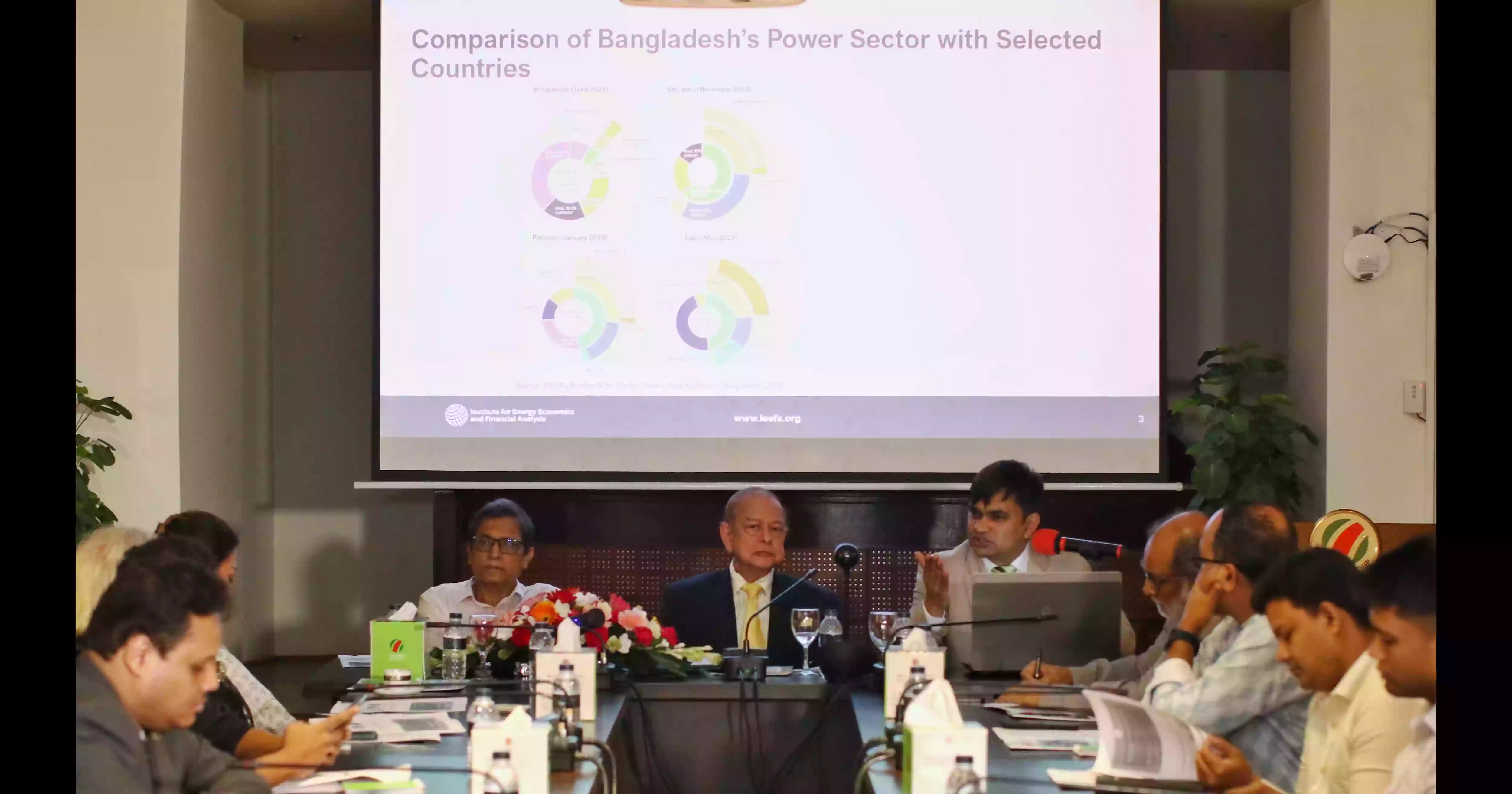Lack of transition roadmap may prolong energy crisis in Bangladesh: Experts

Energy experts are worried about Bangladesh not having an energy transition roadmap yet, warning that the acute energy crisis is likely to persist.
The experts, however, had different views about what constituted an energy transition. Some of them are in favour of switching to renewable energy, while others believe it could be adopting nuclear energy or any other alternative source of energy.
They shared the observation at a seminar titled ‘Energy Transition: Is Bangladesh on the Right Track?’ organised by the Cosmos Foundation at the Cosmos Centre in Dhaka on Tuesday.
Concerned by endless corruption in the fossil fuel sector, the energy experts viewed the energy transition as an opportunity to ensure accountability and energy efficiency with the end goal of establishing energy and consumer justice.
“Energy transition should ideally begin with ensuring energy justice and consumer rights,” said M Shamsul Alam, energy adviser, Consumers Association of Bangladesh (CAB).
He was surprised by the fact that the Anti-Corruption Commission had yet to bring corruption charges against anyone in the energy sector since the interim government assumed power, promising change and transparency.
“The energy regulatory commission manipulates pricing at will, exploiting consumers. Energy imports have become a way of money laundering. A real change in the energy sector means changing the existing situation,” he said.
President of the Cosmos Foundation and a former foreign affairs adviser to the caretaker government, Iftekhar Ahmed Chowdhury, chaired the discussion.
In his opening remarks, Iftekhar Ahmed emphasised the need for shifting focus from short-term security to long-term sustainable solutions in the energy sector.
Delivering the keynote presentation, Shafiqul Alam, lead energy analyst at the Institute for Energy Economics and Financial Analysis (IEEFA), said Bangladesh’s gas reserves are fast depleting, reaching a new low in 2025.
Despite some growth in renewable energy over the decades, it still accounts for less than 5 percent of the country’s total energy mix, said Shafiq.
Renewable capacity has grown from 230 MW to 1,500 MW, yet this remains inadequate compared to demand.
“While neighboring India, Pakistan and Sri Lanka are increasingly enriching their solar power capacities, Bangladesh lags far behind them,” he said.
Alam argued that a planned energy transition roadmap towards renewable energy could save Bangladesh billions of dollars annually.
Rooftop solar alone has the potential to meet 2,000 MW of demand, he said, adding, “Bangladesh can save at least $1 billion by reducing its reliance on imported energy.”
He pointed out that rooftop solar expansion is not feasible under current policies. Constant policy changes and a lack of a consistent roadmap also stand in the way of Bangladesh’s energy transition.
Ijaz Hossain, a former dean of Engineering at Bangladesh University of Engineering and Technology, strongly criticised the renewable energy plan.
“Bangladesh’s idea of setting up windmills and solar plants along riverbanks is ridiculous,” said Ijaz.
He argued that nuclear energy offers a greater energy transition opportunity than renewable energy sources for Bangladesh.




